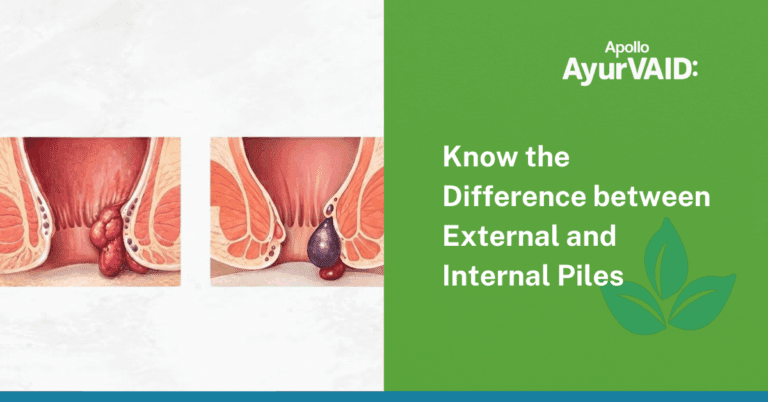Introduction
Hepatitis B is a virus that infects the liver and affects over two billion people worldwide and 350 million have persistent infections. If left untreated early, the virus can cause serious liver damage or even cancer. Despite vaccines and treatment options, long lasting infections still pose serious health threats. In this blog we will discuss what Ayurveda has to offer in the fight against Hepatitis B, a global health concern. Modern medicine has come a long way in prevention and treatment, but many people are now turning to Ayurveda to reverse the root cause and maintain liver health.

What is Hepatitis B?
The Hepatitis B virus (HBV) is the main cause of Hepatitis B, which largely affects the liver. This virus may lead to infections that are either temporary or persistent. It may cause serious liver problems that feature cirrhosis, hepatocellular carcinoma, acute or chronic hepatitis, or a mixture of each. The causes of Hepatitis B include unprotected sexual intercourse, sharing infected needles, or during childbirth, as well as via contact with infectious body fluids. The complicated genome complicates treatment and increases the chance of liver cancer. Many people are now seeking an Ayurvedic cure for Hepatitis B to complement modern treatment options and help manage the condition naturally.
Ayurvedic Understanding of Hepatitis B
In Ayurveda, Hepatitis B is seen as a condition where Pitta dosha gets aggravated, especially in the liver (Yakrit). When Pitta becomes excessive due to unhealthy food habits, stress, alcohol, infections, or toxins, it weakens Agni and leads to inflammation of the liver. This affects how the liver processes nutrients and removes toxins, causing fatigue, jaundice, poor digestion, and weakness.
Ayurveda also believes that imbalance in Vata and Kapha can add to the problem. Vata can increase dryness and weakness of liver tissues, while Kapha can lead to congestion and sluggish liver function. The focus of Ayurvedic care is to cool excess Pitta, detoxify the body, strengthen digestive fire, and nourish the liver tissues.
Causes of Hepatitis B
Ayurveda connects Hepatitis B to several internal and external factors that disturb Pitta and weaken liver function:
- Unhealthy eating habits such as too much spicy, oily, fried, or fermented food, which aggravate Pitta.
- Excess alcohol consumption, which heats and damages liver tissues.
- Irregular eating and sleeping schedules, which weaken Agni and disturb dosha balance.
- Long-term stress or anger, which directly increases Pitta and affects the liver.
- Exposure to toxins or pollutants, which load the liver and reduce its ability to detoxify.
- Infections that enter the body, which weaken immunity and disturb Pitta, leading to inflammation in liver tissues.
- Low immunity, making the body more vulnerable to viral infections that affect Yakrit.
Ayurveda sees Hepatitis B not only as a viral condition but as a result of weakened liver strength (Yakrit-daurbalya) and imbalance in the body’s natural systems.
Symptoms of Hepatitis B
The symptoms of Hepatitis B can range from light ones like the flu to more worrisome complications. The common symptoms include –
- Skin and eyes that are turning yellow (jaundice)
- Dark urine
- Abdominal pain
- Fatigue and weakness
- Nausea and vomiting
- Loss of appetite
- Fever
- Joint Pain

Ayurveda for Hepatitis B
Ayurveda’s holistic approach aims at supportive treatment for Hepatitis B and preventing further complications. Shamana (oral medicines) and shodhana (purification) for Pitta – Kapha dosha balance, improving digestion and metabolism, rejuvenation therapy (Rasayana) etc are the means to achieve this. The treatment is designed to lower the risk of liver cirrhosis, failure and virus reactivation, which could reduce the risk of complications such as kidney diseases and cancer in the future. Lifestyle modifications such as eating at regular times, avoiding fatty and spicy foods, regular exercise, no smoking and no alcohol, no sharing of personal items and no use of over the counter medications are also advised to optimize the outcome.
The aim of Ayurveda treatment is to improve liver function and avoid further disease progression. Important clinical outcomes include decreased viral load, lowered liver enzymes, reduced transaminase, and improved liver function parameters. Internal medications, Virechana (therapeutic purgation) and customized Ayurveda protocols support sustained improvement over a longer period.
Safety, Risks & Precautions
Ayurvedic care for Hepatitis B should always be done under the supervision of a qualified practitioner. Here are simple precautions:
- Avoid self-medication with herbs. Some herbs may not be suitable if liver enzymes are very high.
- Skip heavy, spicy, deep-fried, and sour foods, as they increase Pitta and worsen inflammation.
- Avoid alcohol completely, since it can rapidly damage liver cells.
- Follow a light and easy-to-digest diet, such as warm soups, steamed vegetables, rice, and moong dal.
- Stay hydrated, as dehydration can strain the liver.
- Take rest when the body feels tired, since overexertion weakens immunity.
- Avoid unnecessary medications, unless prescribed, because many drugs are metabolized by the liver and can increase liver load.
- Follow your doctor’s advice, including blood tests to monitor liver function.
- Practice gentle yoga and breathing exercises, avoiding anything strenuous until your energy improves.
- Do not undergo Panchakarma (like strong detox therapies) during acute infections unless advised by an experienced Ayurvedic doctor.
These precautions help prevent further damage to the liver and support natural healing while keeping doshas in balance.
Conclusion
Hepatitis treatment in Ayurveda follows a more comprehensive approach where both the body and the lifestyle are taken into consideration. It can prevent complications such as cirrhosis, liver failure and virus reactivation, and decrease the risk of kidney disease and cancer. The best way to manage Hepatitis B and maintain long term liver health is to integrate traditional wisdom with modern medicine.
Reference
- Zanwar, A, Wajpeyi, S (2020). Management of Hepatitis B (Carrier stage) through Ayurved – A Case report. International Journal of Ayurvedic Medicine. https://doi.org/10.47552/ijam.v10i4.1298
- Varsakiya, J et al. (2022). Role of Ayurveda treatment in the management of hepatitis B (Ubhayapatha Ashrita Swatantra Kamala)- A case report. Ayu, 43, 13 – 17. https://doi.org/10.4103/ayu.ayu_17_21
- Ratha, K et al. (2020). Ayurveda management of alcoholic liver disease with acute hepatitis B: A case report. Journal of Ayurveda Case Reports, 3, 143 – 147. https://doi.org/10.4103/jacr.jacr_63_20






